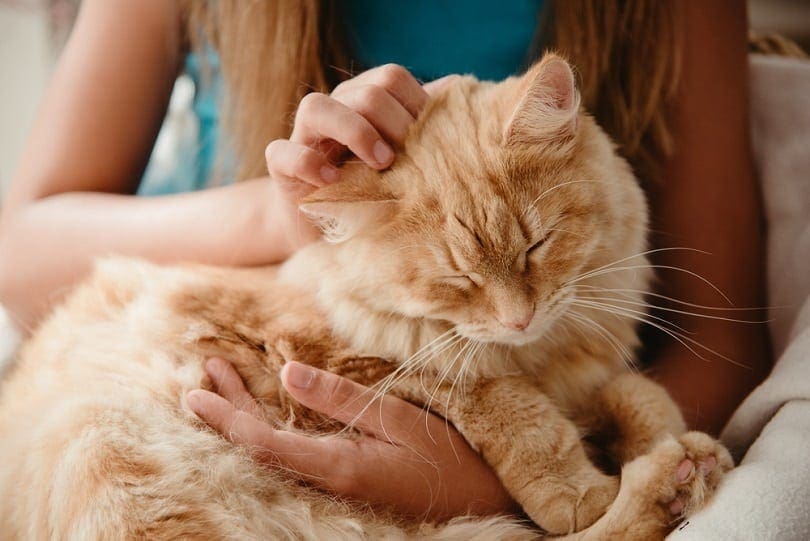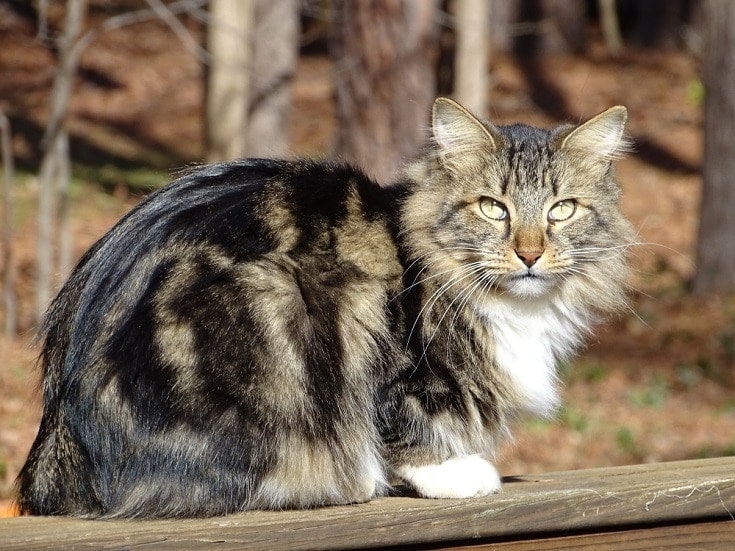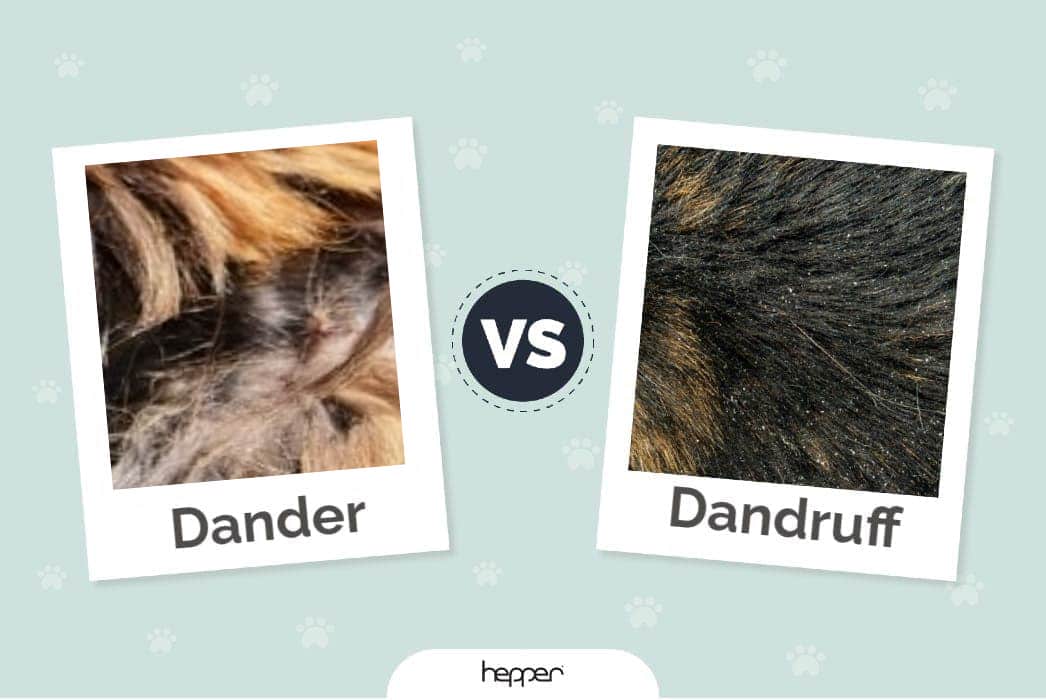Can Cats Eat Mint Ice Cream? Vet Approved Facts, Safety Guide & FAQ
By Jordyn Alger
Updated on
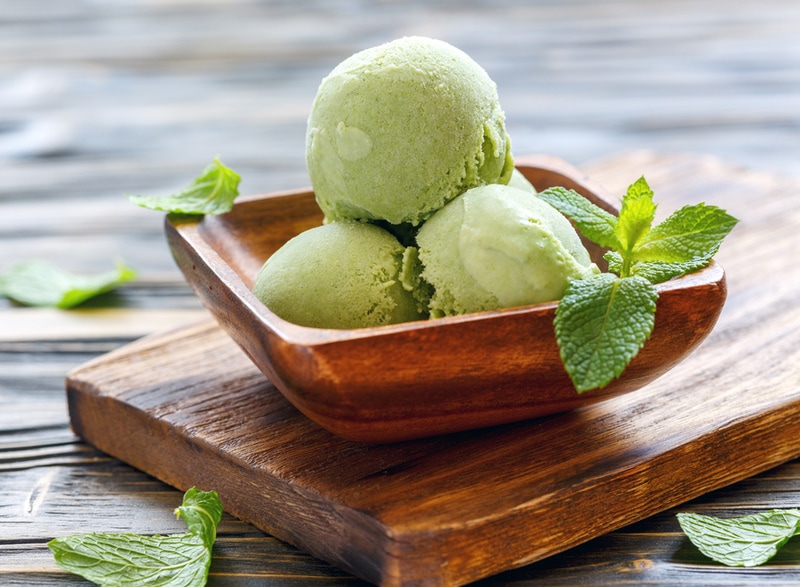
Click to Skip Ahead
Every cat lover wants to treat their furry friend, but some of the things that we think of as treats are actually threats. In the case of mint ice cream, it is at best, unhealthy for your cat. At worst, it could be toxic.
In this article, we will look at common ingredients in ice cream and explain how each one affects your cat. Then, we will review some frequently asked questions about feeding your cat ice cream.
Common Ingredients in Mint Ice Cream
The most common ingredients in mint ice cream include the following:
- Milk
- Sugar
- Heavy cream
- Sugar
- Pure peppermint extract
Different recipes for mint ice cream may contain various ingredients. For instance, it is common for mint ice cream to contain bits of chocolate, so many recipes call for semi-sweet chocolate chips.
As delicious as this recipe may sound, it isn’t ideal for your cat. To better understand why, we will discuss each ingredient in detail.
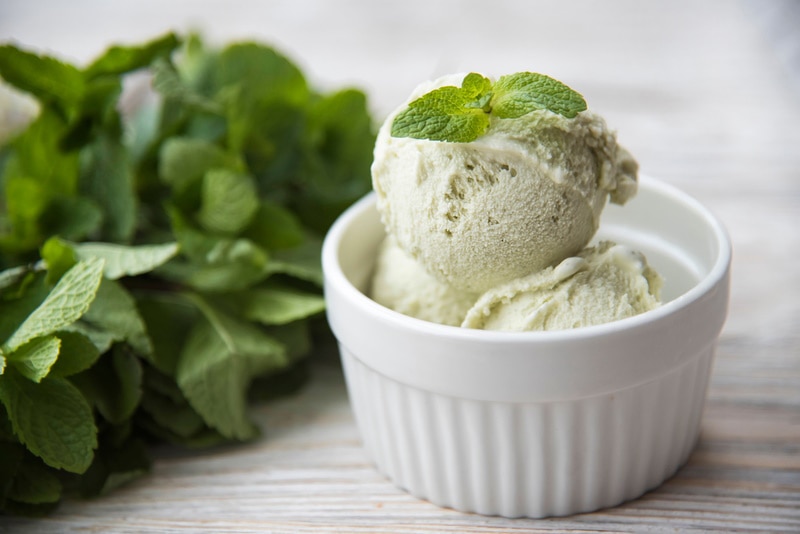
How Milk and Cream Affect Cats
Milk is supposed to be a cat’s favorite beverage, right? At least, that’s what the stereotype suggests. However, you may be surprised to discover that milk is not your cat’s best friend. In reality, most cats are lactose intolerant. While kittens drink their mother’s milk, their bodies eventually stop producing the enzymes needed to digest milk properly.
By the time your kitten has grown into an adult cat, it is likely that they are no longer capable of processing lactose. When lactose-intolerant cats ingest milk, cream, or other dairy products, they may experience the following:
- Vomiting
- Diarrhea
- Gastrointestinal distress
- Abdominal pain
If your cat shows any of these signs within 12 hours of ingesting dairy, there is a chance that they are lactose intolerant. Typically, cats will recover from gastrointestinal upset after 24 hours, but if your cat’s discomfort and distress persist, reach out to your vet immediately.
Even if your cat were not lactose intolerant, allowing them to drink milk or cream wouldn’t be a good idea. Milk and cream are high in fat, so if your cat consumes them regularly, they may be at higher risk of obesity.
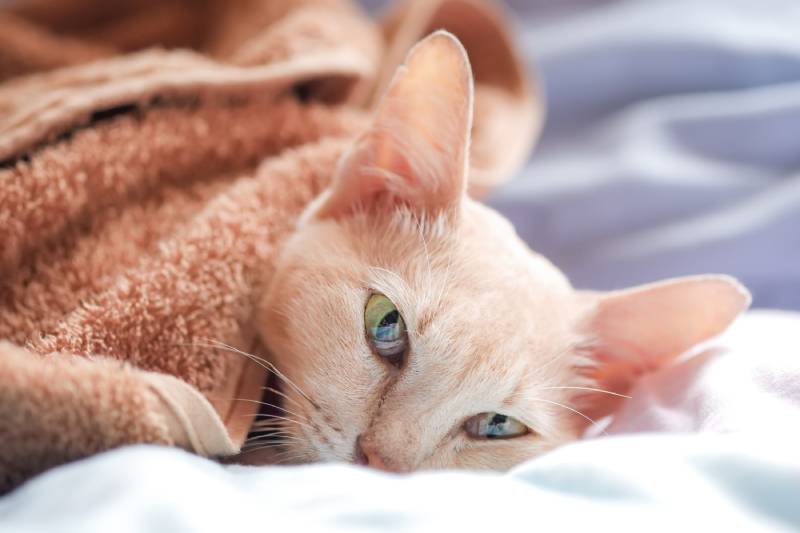
How Sugar Affects Cats
Cats are obligate carnivores and must primarily eat animal protein for a healthy and balanced diet. Their bodies were not designed to process carbohydrates such as sugar. Eating sugary foods is not good for your cat, and over time, they may become susceptible to obesity and diabetes.
Furthermore, it’s not just a matter of should cats enjoy sweets; it’s a matter of can they. The answer is they cannot. Cats are biologically incapable of tasting sweet flavors, and eating sugary foods doesn’t provide them with delicious flavors or essential nutrients.
How Peppermint Affects Cats
Now, we’re diving into the truly hazardous ingredients. Peppermint extract is a mixture of peppermint oil and alcohol, which are dangerous for cats. Peppermint oil is especially unsafe, as it is toxic for your cat. Both ingestion and simple skin exposure can have serious health consequences.
This is due to your cat’s inability to metabolize essential oils. There are chemicals in peppermint oil that can be swiftly absorbed into the skin and then processed through the liver. However, your cat lacks an adequate number of enzymes to be able to process these chemicals. If peppermint oil builds up in your cat’s system, you may notice the following signs:
- Peppermint fragrance on their skin, coat, or breath
- Frequent pawing at the mouth or face
- Redness of the lips, gums, or tongue
- Burns around the mouth
- Struggling to breathe
- Drooling excessively
- Uncoordinated walking
- Lethargy and weakness
- Vomiting
- Muscle tremors
If you notice any of these signs, contact your vet immediately. Rapid treatment is essential to a positive outcome for your cat.
How Chocolate Affects Cats
While chocolate is not a required ingredient in mint ice cream, it is a common inclusion. It has a huge impact on cats, so we thought it was best to discuss it.
Since chocolate is a sugary food, it is evident that its sugar content alone is unhealthy for cats. However, the sugar is not the biggest concern about feeding chocolate to your cat, as chocolate is considered toxic.
If your cat eats too much chocolate, they may experience issues such as:
- Diarrhea
- Vomiting
- Lack of appetite
- Excessive thirst and urination
- Restlessness
- Rapid heart rate
- Panting, increased breathing rate
- Muscle tremors
- Seizures
- Coma
In severe instances, eating chocolate may be fatal for your cat. Therefore, if you suspect your cat has eaten chocolate, contact your veterinarian immediately.
Frequently Asked Questions
After going through the main ingredients in mint ice cream, it is evident that it is harmful to cats. Even so, you may have more questions regarding what your cat can and cannot eat. Below, we’ve answered some frequently asked questions on the topic.
Can Cats Eat Other Flavors of Ice Cream?
Mint ice cream is off the table due to its ingredients, and so are other flavors of ice cream. While not all ice cream flavors contain toxic elements such as peppermint extract or chocolate, they often have milk, cream, and sugar, which are bad for your cat.
What Human Desserts Are Safe for Cats?
Sadly, no human desserts are suitable for your cat, even those containing no toxic ingredients. Human desserts are unhealthy for humans, so it stands to reason that they are even more harmful for cats. Cats aren’t meant to process sugary, carbohydrate-rich foods, so it is best to avoid them altogether. Instead, why not find a tasty cat treat to offer your pet?
What if Your Cat Eats Something Toxic?
If you believe your cat has consumed something toxic, prompt response is crucial. Immediately call your vet or the Pet Poison Helpline. Follow all instructions the professionals give you, and unless explicitly told to do so, do not attempt to induce vomiting in your cat. Doing so may only make the issue worse.

Final Thoughts
Mint ice cream is not an appropriate treat for cats. None of the ingredients are beneficial for your pet, and in some instances, they may even be toxic. If you want to give your cat a tasty treat, it is best to stick to veterinarian-approved, feline-safe treats crafted with your cat’s digestive system in mind.
Featured Image Credit: SMarina, Shutterstock



